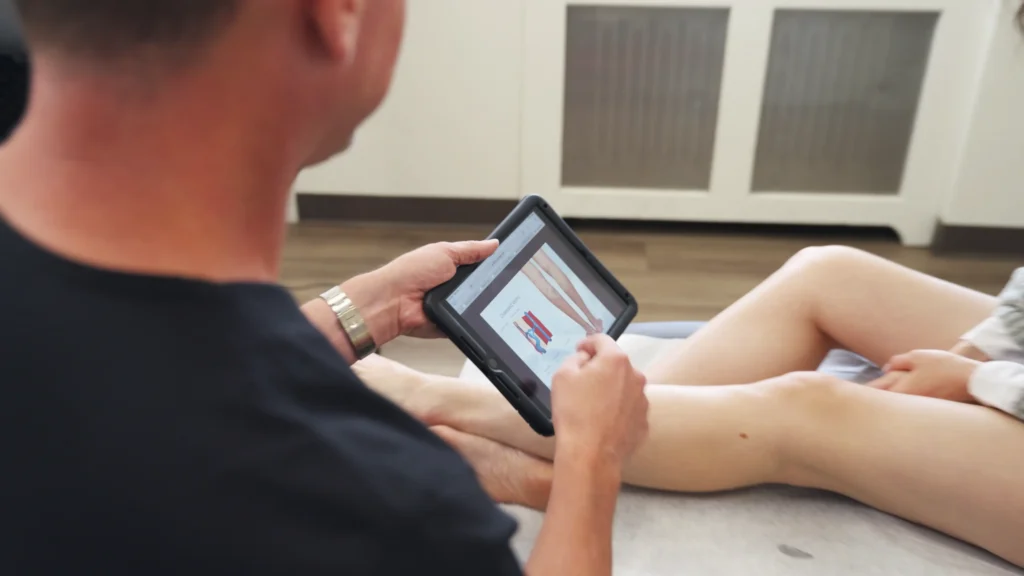The Link Between Mental Health and Chronic Vein Conditions
At Vein Doctor, we understand that chronic vein conditions can significantly impact your life. What many people don’t realize is that these conditions are not just physical; they can also have profound effects on your mental health. As board-certified vein doctors, we are committed to providing comprehensive care that addresses both the physical and emotional aspects of chronic vein conditions. In this article, we will explore the intricate link between mental health and chronic vein conditions and offer insights into how our holistic approach can help you achieve better overall well-being.
What You Might Not Know About How Vein Health Affects the Way You Feel
By Dr. Billy Schoenfeld, Vein Specialist
This article is intended for informational purposes only and should not be considered medical advice. Always consult a qualified healthcare provider regarding your symptoms or treatment options.
Feeling Low, Tired, or Frustrated with Your Legs? You’re Not Alone.
If you’ve been living with uncomfortable leg symptoms -like swelling, aching, or bulging veins- you may also be feeling emotionally drained. Many people with chronic vein conditions report increased stress, low self-esteem, and even symptoms of anxiety or depression. While we often talk about the physical discomfort of varicose veins and spider veins, we don’t talk enough about the emotional toll.
At our vein treatment clinics, we’ve noticed a common theme: patients often share that their quality of life improves after treatment – not just physically, but mentally and emotionally too. While treatment isn’t a cure for anxiety or depression, improving your vein health may help you feel more confident, more active, and more in control of your body again.
The Emotional Impact of Vein Disease: What Research Suggests
Although more research is still needed, some studies have shown a connection between chronic vein disease and mental health. For example:
- Chronic discomfort from venous insufficiency can limit your ability to exercise or stay active, which in turn affects your mood.
- Visible veins can lead to self-consciousness or changes in clothing choices, impacting body image and confidence.
- Ongoing fatigue or leg heaviness may contribute to emotional burnout or low energy.
A small 2021 study published in Phlebology found that patients with varicose veins reported improvements in both physical symptoms and emotional well-being after undergoing minimally invasive procedures. While not a replacement for mental health care, these treatments may help you feel more like yourself again.
“After My Treatment, I Finally Felt Like Wearing Shorts Again.”
Many of our patients say they feel relieved—emotionally and physically—after vein treatment. While results vary from person to person, here’s what we commonly hear after care:
- “I can stand longer without discomfort at work.”
- “My legs feel lighter, and I’m walking more.”
- “I stopped hiding my legs in long pants, and that feels like freedom.”
It’s important to remember: vein treatment isn’t cosmetic for most people. If you’re experiencing symptoms, you may be dealing with a medical condition known as chronic venous insufficiency, and this is often covered by insurance.
Spider Veins
Spider veins are small, dilated blood vessels that appear close to the surface of the skin. They are usually red, blue, or purple and can look like a spider’s web or tree branches. While spider veins are generally harmless and do not cause pain, they can be a cosmetic concern for many people. They are most commonly found on the legs and face and can be caused by factors such as genetics, hormonal changes, and prolonged standing or sitting.
Varicose Veins
Varicose veins are larger, swollen veins that often appear twisted and bulging. They typically develop in the legs and can cause discomfort, pain, and a heavy feeling in the affected limbs. Varicose veins occur when the valves in the veins that help regulate blood flow become weakened or damaged, allowing blood to pool and the veins to enlarge. Risk factors for varicose veins include age, pregnancy, obesity, and a family history of vein problems.

Undergo Minimally Invasive Vein Treatments
Minimally invasive vein treatments, such as endovenous laser treatment (EVLT) and sclerotherapy, can improve your vein health and alleviate symptoms like pain and swelling. These procedures not only enhance your physical well-being but also boost your mental health by improving your appearance and reducing discomfort. At Vein Doctor, we offer the latest minimally invasive vein treatments to help you feel better physically and emotionally.
You’re Not Alone & You Don’t Have to Wait to Feel Better
If your legs are affecting how you feel – physically or emotionally – it may be time to schedule a consultation. We’re here to listen, assess your symptoms with a vein ultrasound, and walk you through what treatment might look like. Most procedures are non-surgical, take less than 30 minutes, and require little to no downtime.
Ready to Take the First Step?
Many insurance plans cover evaluations and treatments for vein disease. Our team is happy to verify your benefits and answer your questions.
👉 Schedule your consultation today
or
📞 Call us to speak with a care coordinator.
Disclaimer: This blog is for informational purposes only and is not intended to diagnose or treat any condition. Individual results vary. If you’re experiencing anxiety, depression, or other mental health concerns, please consult a licensed mental health professional.



